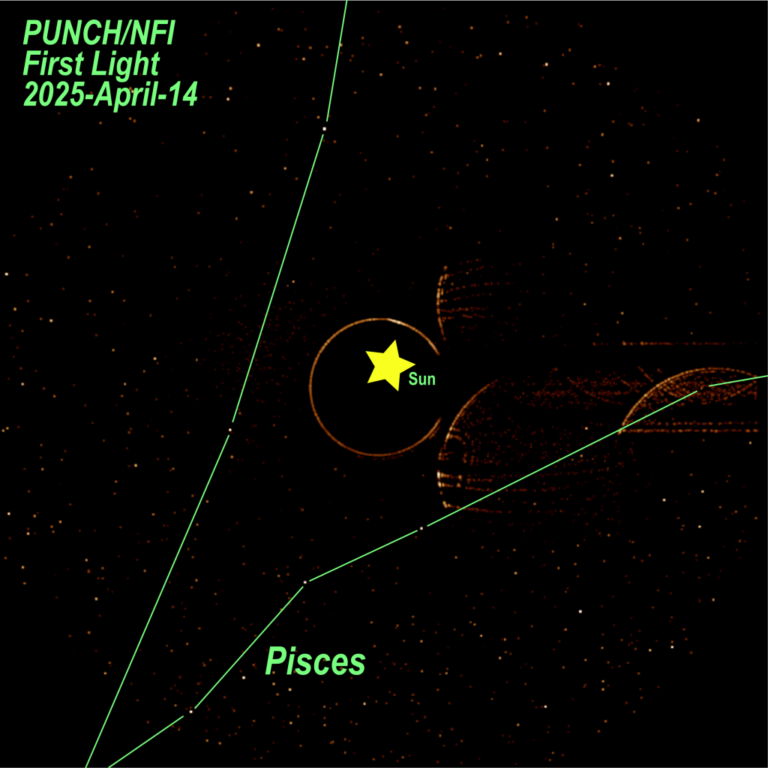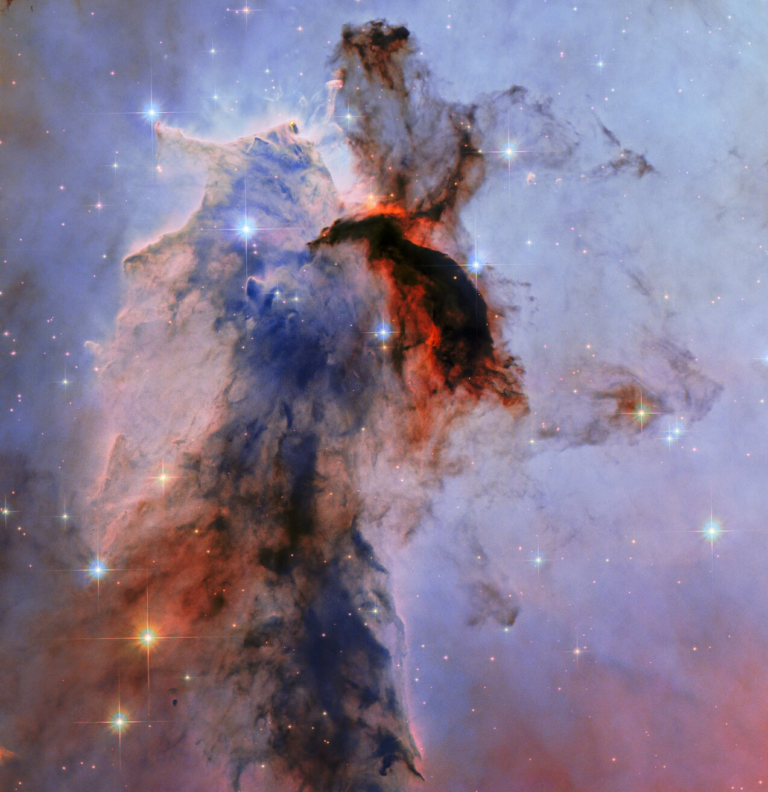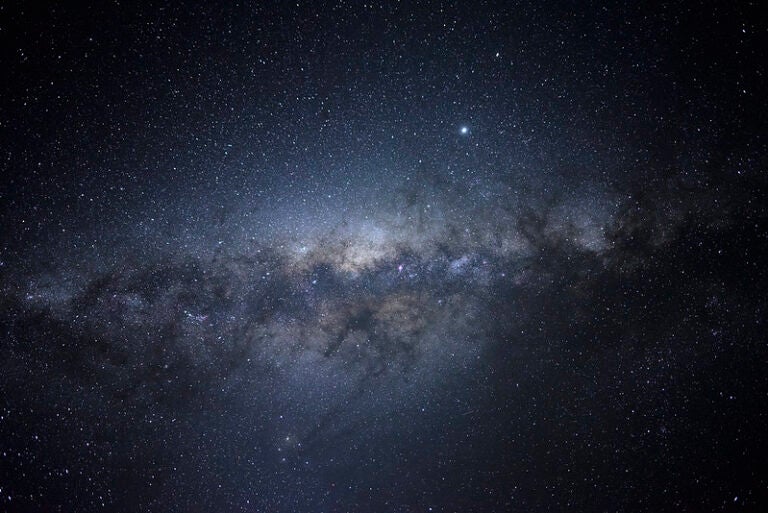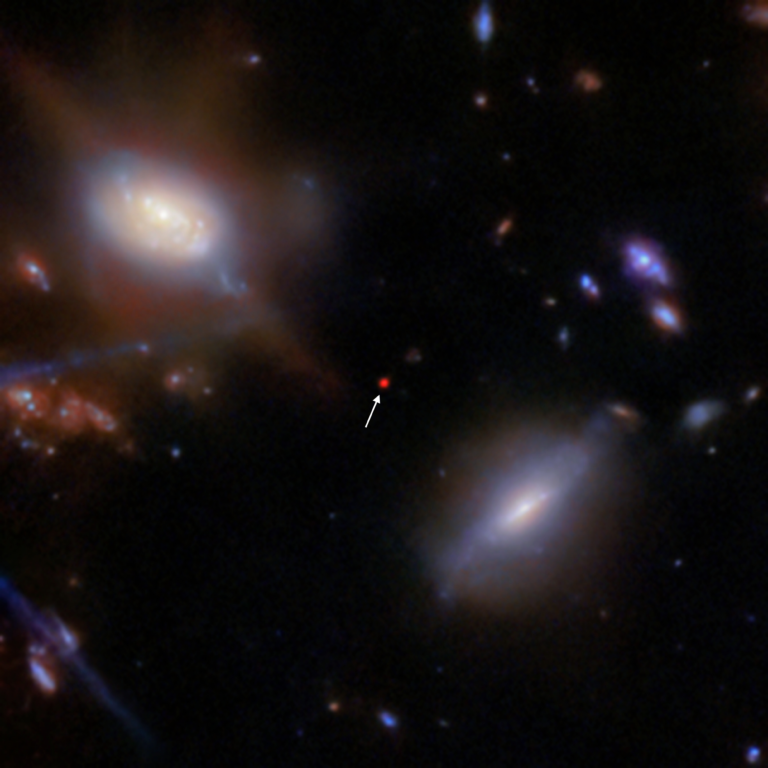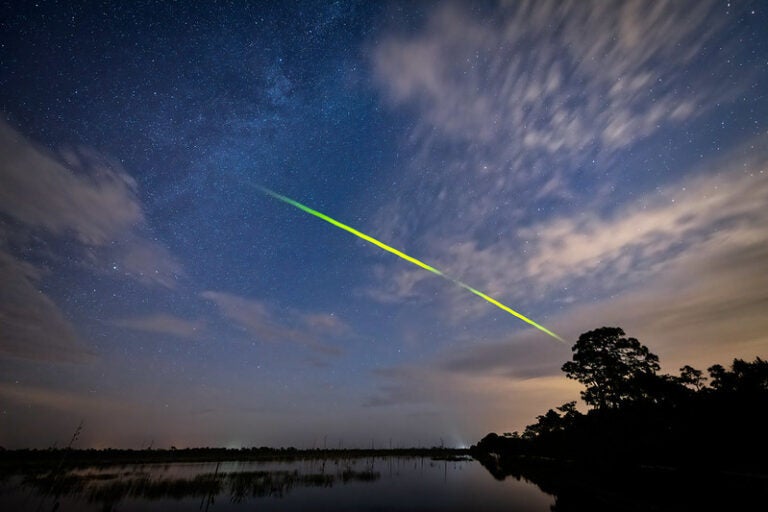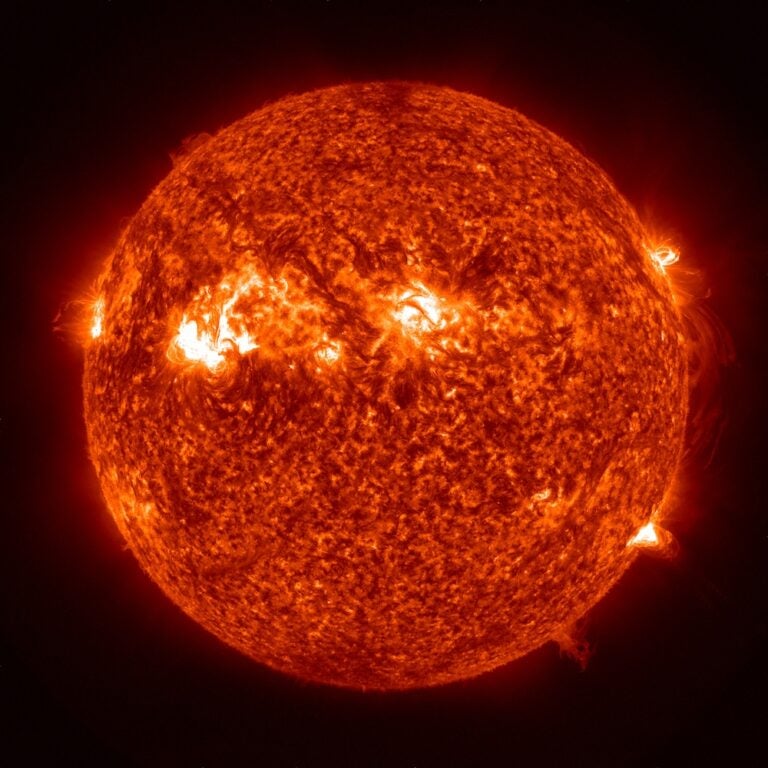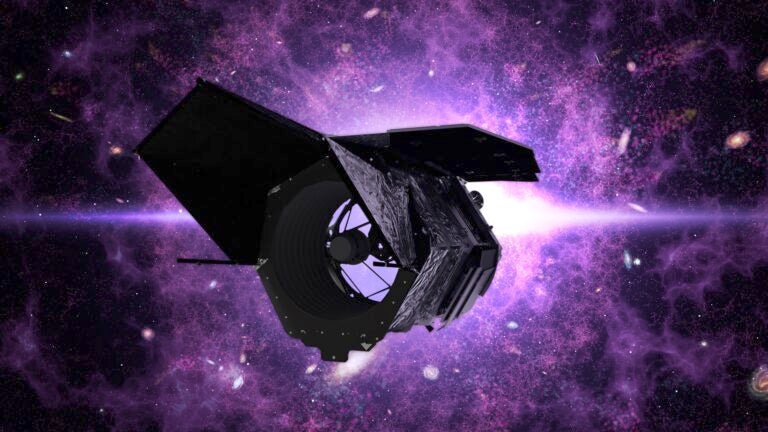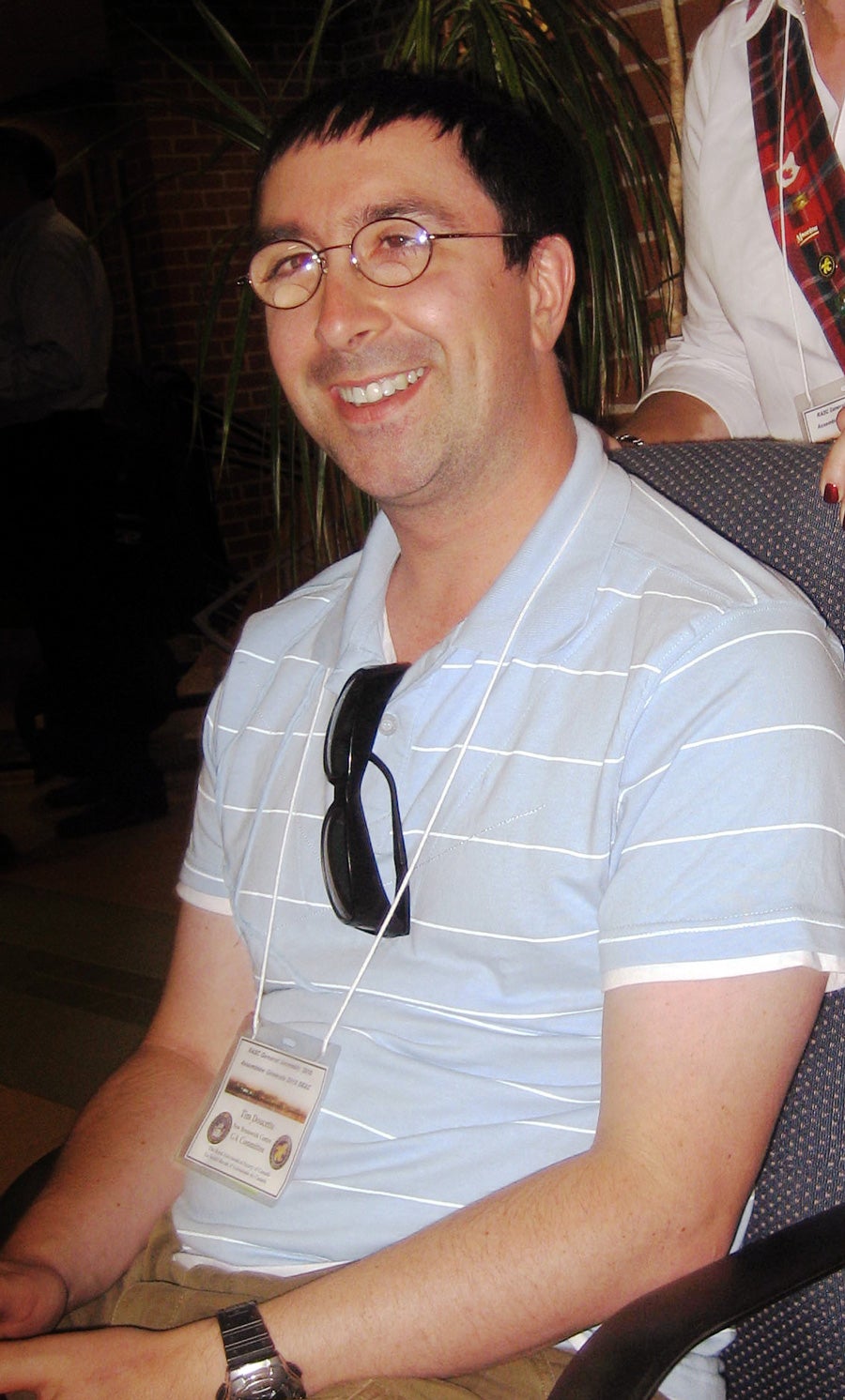
Ad astra per aspera is a famous Latin phrase meaning “to the stars through difficulties” — if you wish to do something badly enough, like gaze upon the stars, you shouldn’t let anything stop you. Allow neither disability nor cloudy nights to prevent you from engaging that passion. To show us how it’s done, this month we meet Tim Doucette from the Canadian province of New Brunswick. With eyesight so bad he is legally blind, Doucette still has the courage to reach for, and find, the stars.
Doucette’s long and unusual career in astronomy traces back to an evening in the bathtub about 6 months after his birth December 12, 1973. While his mother washed him, she accidentally splashed some water in his eyes. The baby didn’t react at all — didn’t even blink. His parents soon learned that Doucette had been born with congenital cataracts, leaving him completely blind.
Surgery restored some of his eyesight, but his optic nerve didn’t develop fully. Doucette has remained legally blind, with eyesight of 20/80 in his right eye (the better one), 20/200 in the left, and a field of vision spanning only about 2°. But while the surgical intervention on his cataracts restored some sight, in time the cataracts reformed and a second surgery became necessary, this time removing all of his eyes’ lenses. It was a success.
On the first night going home after his surgery, Doucette discovered “that my pupils had opened up and would let more light in, giving me a memorable view of the Milky Way.”
Doucette’s interest in astronomy is a direct result of his condition. While working one summer at a camp for visually impaired children, he met Amanda, another instructor and his future wife. It was her gift of a Celestron 4.5-inch telescope that finally turned his interests to astronomy in 2003. On the night of August 28 of that year, he set up this scope and looked at Mars.
“I couldn’t believe what I could see with that telescope,” he says. “With my own eyes, I saw a polar cap. I called [Amanda] that night to share my excitement. She had been after me for almost 10 years to get a hobby, to do more with my time other than playing on the computer and video games.” Astronomy would eventually become far more important to him than a hobby.
In his earliest few months with the telescope, Doucette occasionally doubted what he could accomplish besides looking at the Moon and the bright planets, especially since neither he nor Amanda could drive to a dark-sky site. After relocating to New Brunswick, he joined the Royal Astronomical Society of Canada (RASC), whose members had an assortment of telescopes and were happy to show off all the deep-sky objects he could ask for.
As it turned out, he needn’t have worried. Whereas people with more normal sight have a low ultraviolet response, Doucette’s is higher. “Because I do not have lenses in my eyes, I have no UV filters like most people do,” he says. This means his night vision is better than normal, which allows him to obtain phenomenal views of many deep-sky objects, such as M31.
Thanks to the RASC, Doucette has even entered the lecture circuit. He now finds it especially easy to talk to children, who couldn’t have found a better role model in astronomy.
“Whatever your particular challenge,” Doucette says, “if you want to do something badly enough — like stargazing — you will find a way. Once you see what’s out there, and once you see how small our planet is, we realize that we must take care of it.” Much like Beethoven, who eventually became deaf, and Galileo, who eventually went blind, Tim Doucette shows us how even considerable difficulties don’t have to stop us from reaching the stars.

